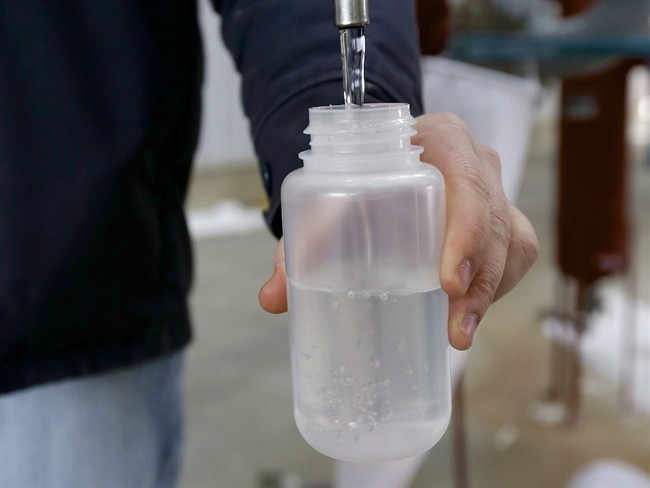CALGARY – Canada’s biofuels industry is facing significant headwinds even as interest grows in ways to reduce carbon emissions.

A combination of low oil prices, the end of a biofuels incentive program, continued competition from U.S. imports, lack of infrastructure, and stricter fuel efficiency regulations are all expected to be barriers to growth in the industry.
Production could even go down, with the International Energy Agency predicting in its latest five-year outlook that Canada’s ethanol production will plunge 38 per cent, from about 1.68 billion litres a year in 2015 to around 1.04 billion litres by 2020 because of those headwinds.
Andrea Kent, president of the Canadian Renewable Fuels Association, said in an email that she disagrees with that outlook.
“Canada continues to be well positioned to be a leader in renewable fuels,” said Kent.
She said biofuels are well placed to help governments achieve carbon reductions, and is pushing to increase the required amounts of biodiesel in gasoline from two per cent to five.
“This presents an ideal opportunity to leverage the successful biofuels mandates to help governments reach those ambitious greenhouse gas reduction targets,” said Kent.
But Environment and Climate Change Canada spokeswoman Natalie Huneault said the department “has no plans to make changes to the federal Renewable Fuels Regulations at this time.”
The government has also confirmed that the ecoENERGY biofuels program, which paid producers an extra per-litre rate to encourage more domestic production, will expire as planned in 2017.
Despite the program, Canada has never produced enough ethanol to meet the five per cent federal blending mandate, and imports hundreds of millions of litres a year from the U.S. to help supply the 2.2 billion litres of ethanol needed.
And some question how effective increasing production would actually be on reducing carbon emissions.
“I would argue it’s a short-term solution to a long-term problem, and isn’t really where we need to go,” said David Layzell, director of the Canadian Energy Systems Analysis Research Initiative at the University of Calgary.
He’s looked at the life cycle impact of ethanol on carbon emissions and said it doesn’t offer significant overall savings.
Estimates of actual carbon reductions vary, but the U.S. Energy Department says corn-based ethanol reduces carbon emissions 19 per cent on average compared with gasoline, and can be as much as 52 per cent.
How much that carbon reduction costs is also up for debate, with Layzell saying in some cases it could cost as much as $800 per tonne of carbon reduction.
“I would argue that may not be worth it,” said Layzell.
Biodiesel is more effective at reducing emissions, but it suffers from poor economies of scale and the IEA is forecasting largely flat production in Canada of 348 million litres a year for the next five years.
Ian Thomson, president of the Western Canada Biodiesel Association, said the fuel would be able to compete without incentives if governments put a real price on carbon, one that is multiples above the $30 a tonne being proposed.
“If you had a real cost of carbon you wouldn’t need any quote unquote subsidies for biofuels, because you’d have a level playing field,” said Thomson.
He said biofuels are important because they offer a proven and immediate solution to carbon emissions.
“Biofuels can deliver really significant reductions right now. And there’s room for more of them,” said Thomson.
Natural Resources Canada spokeswoman Tania Carreira-Pereira said in an email that the government may yet consider new policies for biofuels, as discussions continue on Canada’s framework to address climate change.
“Consideration of the transportation sector, including the role of that alternative fuels can play to meet these commitments, will be part of these ongoing discussions,” she said.


Comments